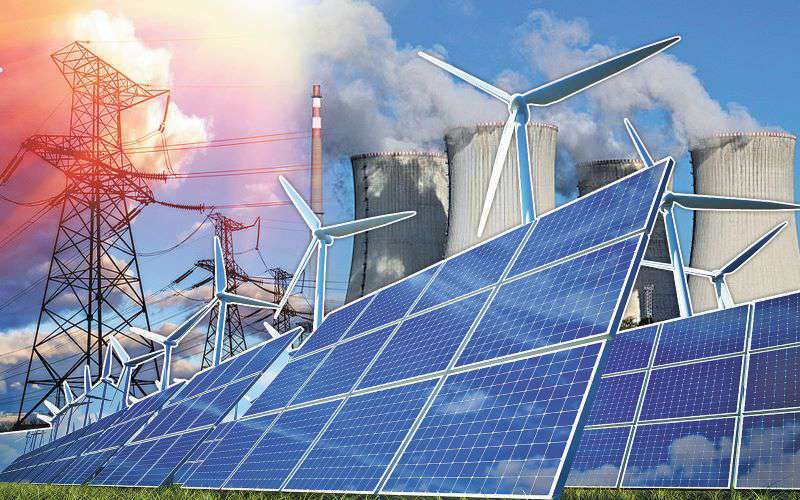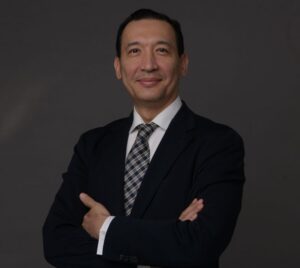ASTANA—What difficulties do companies face in developing renewable energy sources, and how can they attract investments to the sector? Zhomart Mominbayev, head of the supervisory board of Techno Group Service, spoke about making renewable energy the main source of energy in Kazakhstan in a recent interview with Kazakhstanskaya Pravda newspaper.

Photo credit:Kazpravda
The company specializes in the integrated development of renewables in Kazakhstan and Central Asia.
Mominbayev said at least 70% of the country’s energy generation is sourced from coal, resulting in high carbon dioxide emissions. To compare, more than 90% of electricity production is provided by hydro sources in the Kyrgyz Republic and 93% in Tajikistan.
However, Kazakhstan’s climatic conditions may favor the renewable sector and bring opportunities for the development of projects in the renewable energy field.
Difficulties in rolling out renewables

Zhomart Mominbayev.
Kazakhstan has extensive coal and hydrocarbon reserves and is one of the largest uranium exporters. According to Mominbayev, the country needs to prioritize the development of local equipment and technologies for renewable energy.
“The country actively subsidizes a foreign manufacturer, which in turn reduces the possibility of developing domestic producers of renewable energy technologies,” he said.
The existing programs exempt importers of foreign equipment from taxation and customs duties.
The attraction of external technologies and equipment goes against President Kassym-Jomart Tokayev’s position on developing domestic energy engineering and doubling GDP by 2029.
“The development of the green tech association concept for manufacturers is underway. It aims to establish equitable competitive conditions for the growth of local renewable energy equipment and technologies in Kazakhstan. The Kazakh Ministry of Energy and KEGOG national electricity grid operator are actively working on the reliability of the projects,” Mominbayev added.
The investments in the renewable energy sector
“The renewable energy market is developing in four main directions,” said Mominbayev.
Firstly, projects with gigawatts of capacity are implemented through intergovernmental agreements. Wind, solar, bio-, and hydroelectric power plants auctions are held.
The third direction is when large companies, including subsurface users, are given opportunities to generate electricity from renewable energy sources independently. Lastly, small companies with a capacity of up to 200 kilowatts have the opportunity to generate electricity for their needs and sell the surplus to the grid.
Mominbayev suggested introducing regulations that obligate financial institutions to invest a certain percentage of their assets in green and social projects to achieve decarbonization goals by 2060 and improve their positions in international rankings.
“It is important to implement mechanisms that would allow financial institutions, including banks, investment funds and pension funds, to allocate part of their portfolios to finance sustainable development projects that have been independently assessed for compliance with ESG (environmental, social and governance) goals,” he said.
Ulytau Region potential
In October 2023, the Ulytau Region akimat (governor’s office) signed a trilateral memorandum with Techno Group Service and Chinese company SinoHydro to construct a wind power plant with a capacity of 3.4 billion kilowatts per year in the Zhanaarka district and a plant in Zhezkazgan city for the production of metal support towers for wind farms. The planned projects aim to reduce carbon dioxide emissions and achieve carbon neutrality in Kazakhstan by 2060.
“These projects are currently at the pre-investment stage. We hope that soon we will be able to get approval for their implementation from the governments of the two states, Kazakhstan and China,” said Mominbayev.
Techno Group Service is now focusing on the development of programs related to the production of photovoltaic modules, metalwork elements for hydroelectric power plants and energy storage systems, as well as for the production of inverter equipment.
Assessment from the Astana International Financial Center (AIFC)
The Techno Group Service has received an external assessment from the AIFC, which ensures its readiness to meet the Sustainable Development Goals (SDGs) and compliance with environmental standards. According to Mominbayev, the assessment increases the confidence of international investors in the company and its projects.
The company received this assessment with the support of the International Finance Corporation (IFC) at the AIFC Green Finances Center (GFC), which ranks first in the Global Green Finance Index (GGFI) among Eastern European and Central Asian countries.
“It was also proposed to create a center for green finance for the Turkic world based on the GFC in the AIFC,” said Mominbayev.
Artificial Intelligence (AI) and renewables
AI and machine learning technologies are important for developing the operating modes of both the national electric grid and renewables.
“AI will be one of the main tools for reliable operation of renewable energy facilities soon,” noted Mominbayev.
On the other hand, AI consumes a lot of energy, with data processing centers that require a large amount of energy for their main technological process, as well as to maintain a microclimate, ensure fire safety and reliable information transmission.
Leading companies that require AI, such as Google and Open AI, associate their development with renewable energy sources. According to Mominbayev, one goal should be to attract technology giants to Kazakhstan, provide them with clean energy, and adopt their practices to train IT specialists in Kazakhstan.
